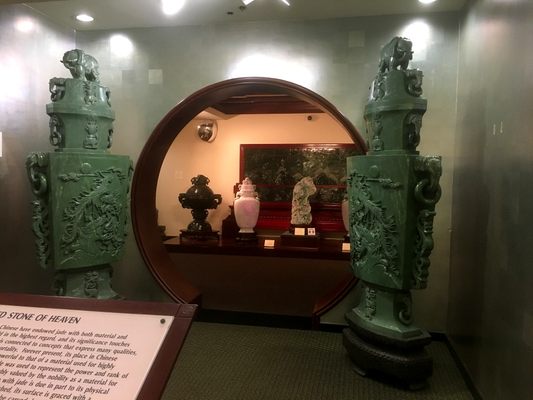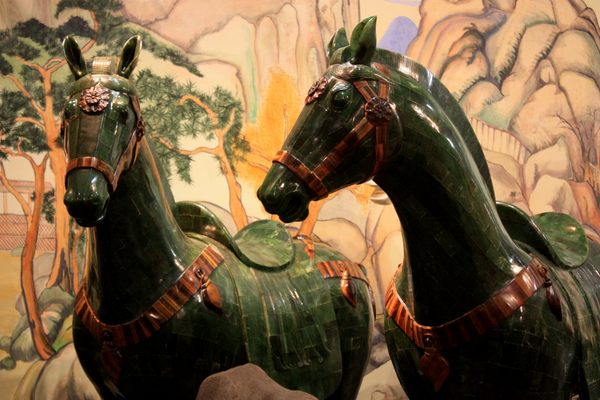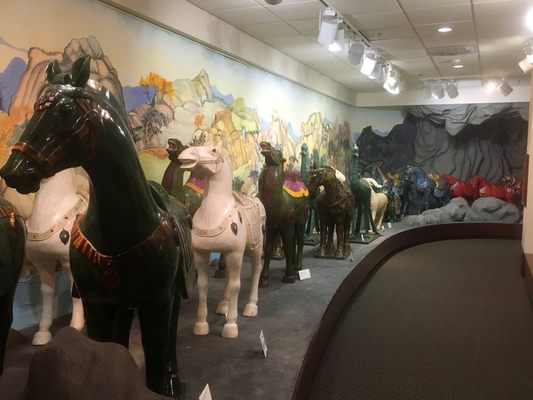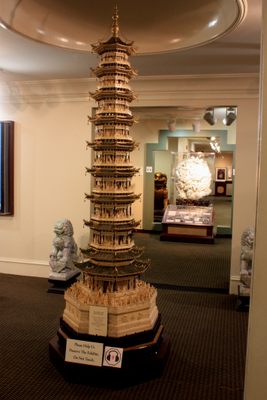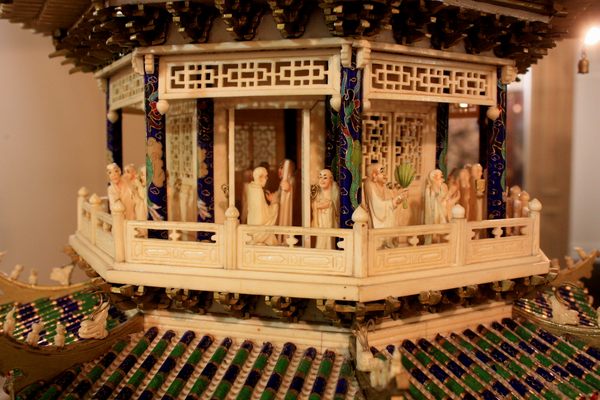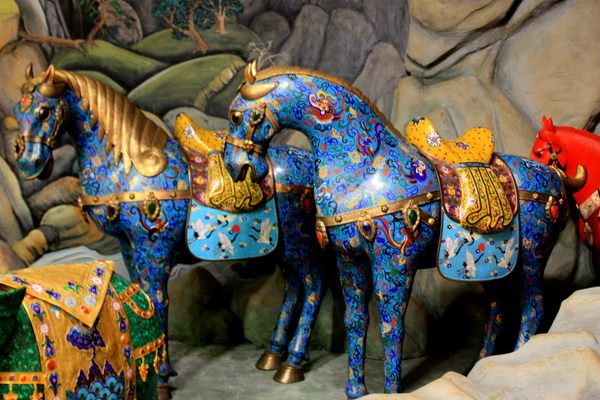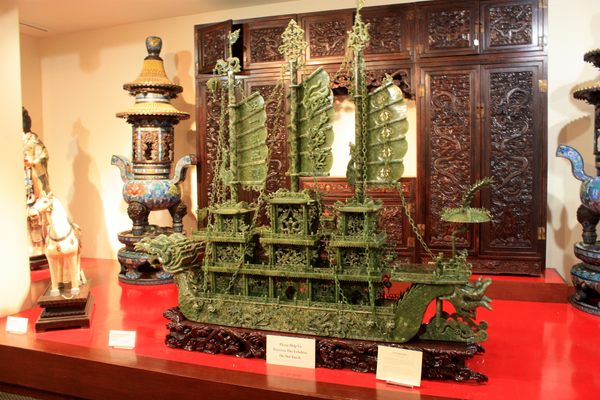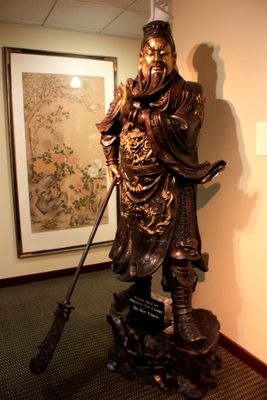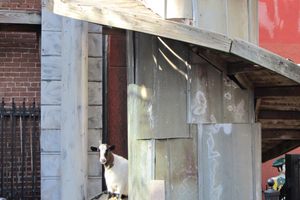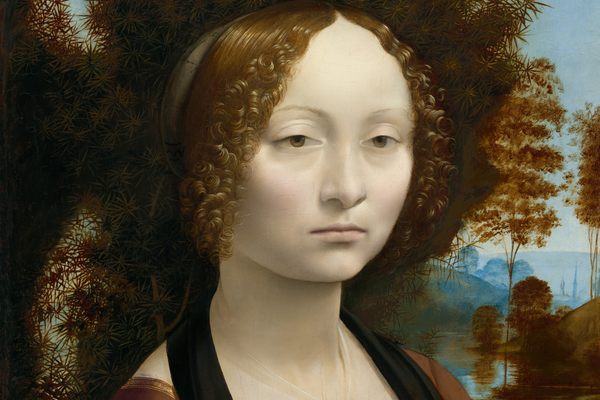About
The Belz Museum of Asian and Judaic Art is an often overlooked spot in Memphis, Tennessee. It’s frequently called the "Jade Museum" because it’s filled with life-sized jade animals and intricately carved objects made from jade and other semi-precious stones.
The artwork belongs to the Belz family, who opened the museum to the public in 1998 to display their collection, the majority of which items created during the rule of China's Qing Dynasty (which spanned from 1644 to 1911). Even most locals don't realize the museum exists, making for a very quiet and personal visit with the art. The gallery spans 24,000 square feet and consists of five permanent exhibit galleries: three Asian, one Judaic, and the Holocaust Memorial Gallery.
Of particular interest is a jade bridal carriage that’s large enough to carry a person or two. In addition, several large animals crafted from jade, tigers eye, ivory, and other precious stones make up a caravan in one of the galleries that is well worth seeing. In another room, a carved ivory pagoda reaches to the ceiling and is filled with tiny figures that represent fabled wise men.
In addition to these exhibits, a Chinese puppet collection, carved gem flowers, carved tusks with ivory scenes, Chinese puzzle balls, and a variety of paintings, cloisonne, furniture, large vases, textiles, and other art make a visit to the Belz Museum worth the time for anyone interested in Chinese art or art crafted from precious stones.
The Judaic gallery holds more than 200 pieces of contemporary Judaic art crafted by Israeli artists. It includes a set of large bronze friezes depicting Biblical scenes. The Belz family commissioned many of the pieces from artists they know personally.
(Museum was briefly closed, but reopened March 1, 2024.)
Related Tags
Know Before You Go
The museum entrance is on Main Street in downtown Memphis. Main Street is a pedestrian walkway with a trolley that runs along it. A nearby parking facility will get you within a block of the museum. Note that there is not free parking nearby. The entry to the building is on the first floor but the museum itself is housed in the basement of the building. Because the museum is relatively unknown, visitors may find that they are the only ones in the museum other than the small staff. This is a wonderful opportunity to view the many pieces of Buddhist and Chinese Imperial art in quiet contemplation. Typically it takes an hour or two to move through the entire museum.
Community Contributors
Added By
Published
August 29, 2017

